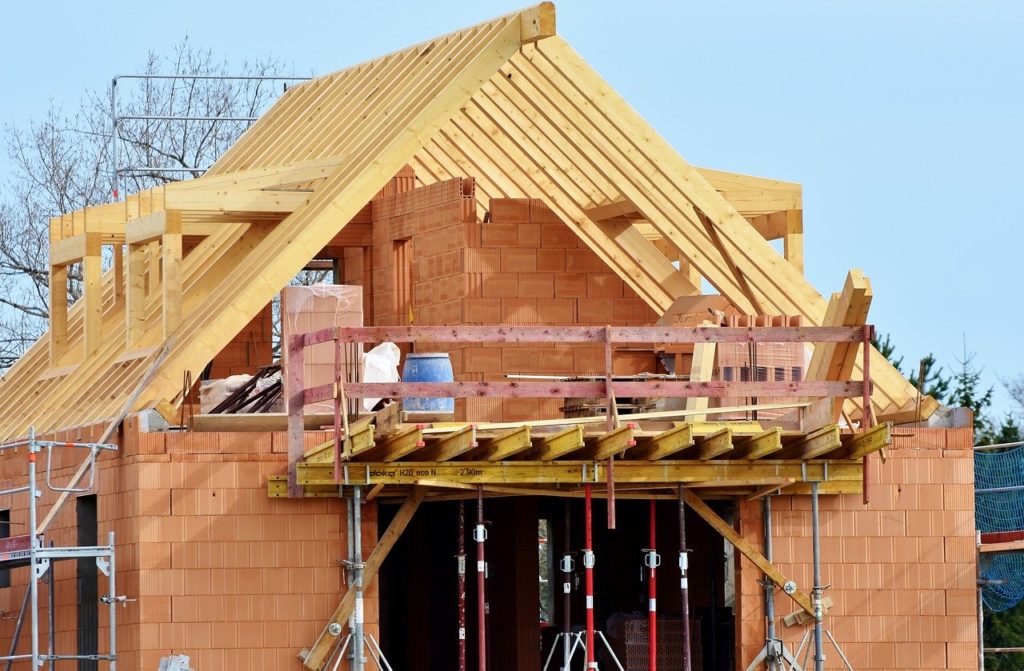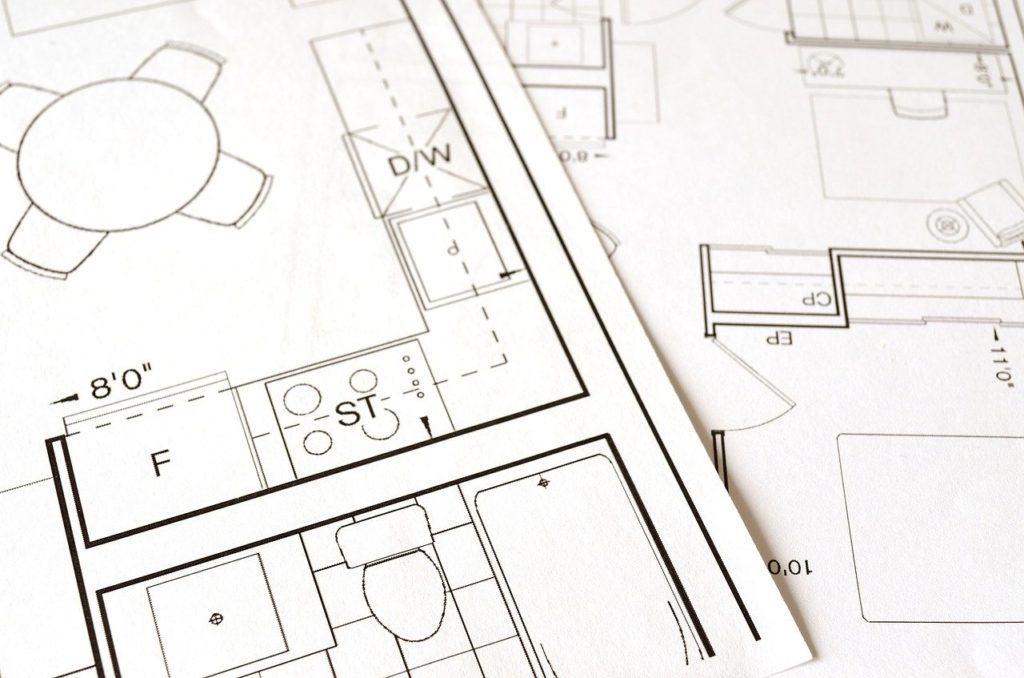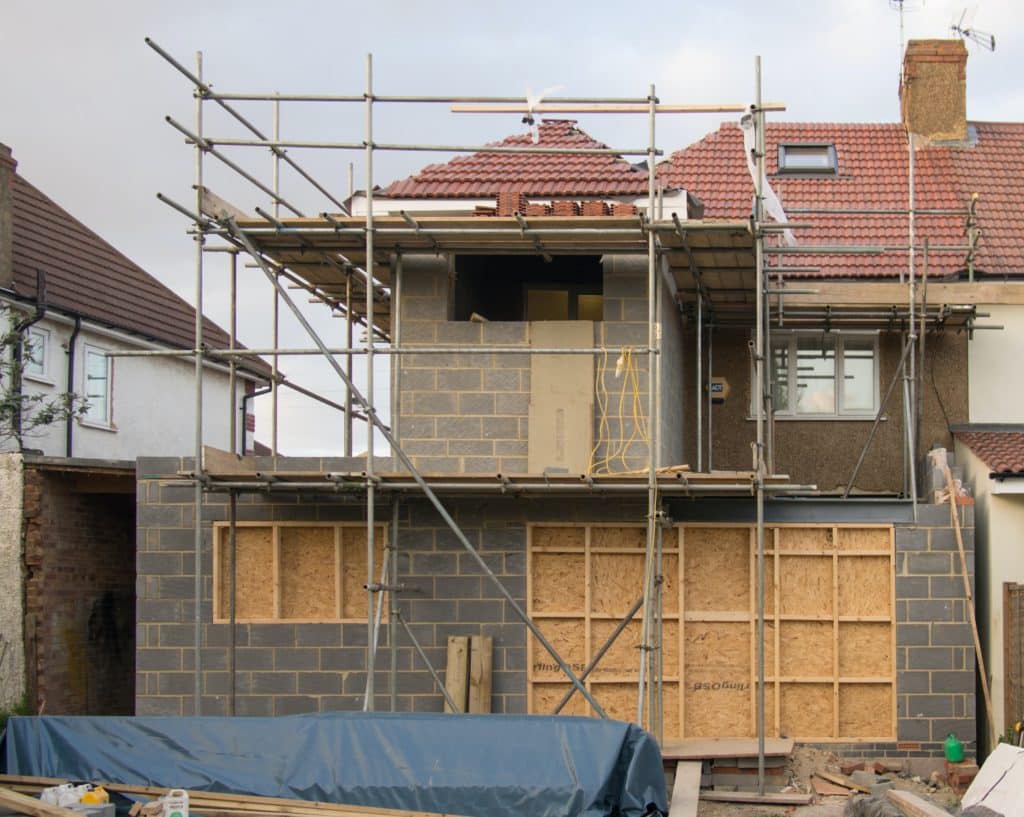Many people look to home extensions as a way to add value to their home and create a more enjoyable living space. One of the first things you need to do on your journey to building a beautiful extension is to work out if you need planning permission or not.
Whether or not you need planning permission for your home extension will depend on a few factors we’ll talk you through in this guide.
What is planning permission?

Applying for planning permission is essentially asking your local authority for permission to carry out certain building work.
Planning permission is normally granted within 8 weeks if it matches certain conditions and there are no objections from neighbours and local community members. If it is refused, you cannot carry out the building work. Instead, you’ll need to look at the reasons that your application for planning permission was rejected and reapply with modifications to your initial building plans.
All planning permission is issued locally by your local authority. The ability to grant permission usually rests with the planning department of your local council.
Do I need planning permission for an extension?
If your project involves creating a new residential property, whether it’s building from scratch or dividing up an existing home, planning permission is almost always required.
Larger extensions will also require planning permission and there are stricter regulations on listed properties and those in the Norfolk or Suffolk Broads.
If you are only looking to build a small extension, there is a possibility you won’t need permission for an extension and it will fall under permitted development. It is best to consult with a professional or your planning authority before starting any work.
Speaking to a contractor, such as one of our qualified team at Emerald Home Improvements, is the easiest way to work out if you need planning permission for an extension. They’ll be able to advise on what extension options you have and make applications for planning permission if you need it.
You can also check with your local authority to find out if you will need planning permission.
When don’t I need planning permission?
The rules surrounding when you need to apply for planning permission changed in 2020. You can now add a single-storey extension that is up to 6m deep on an attached property and 8m on a detached house. This is double the previous size allowance that was allowed before you needed to obtain planning permission. You’ll still need to observe the building regulations though.
You’ll also need to check how much you can extend beyond the rear wall of the original house. Depending on whether you choose a rear extension or a side extension, you may also need to consider the width of the original house.
Work that can be carried out without the need for planning permission is known as permitted development rights. Permitted development rights apply to many common projects for homes but they do not apply to flats or maisonettes.
How do I apply for planning permission?

If your extension doesn’t fall under permitted development, you’ll need to obtain permission. To apply for planning permission for an extension, you need a planning application that is submitted to your local authority.
You can apply for permission for an extension directly, but it is generally far easier to work with a contractor who will be able to make sure your application meets all the necessary criteria.
What is a planning application?
- A planning application will have five copies of application forms that detail the work to be carried out
- A signed ownership certificate
- A design and access statement
- A site plan, block plan, elevations of both the existing and proposed sites.
How long does planning permission last?
Once planning permission has been granted, it does have an expiry date. As standard, your permitted development is valid for three years from the date you’ve been given consent to begin work. It will specifically say if you have a shorter, or longer, time window.
If your planning permission has expired or is going to expire before your work is completed, you will need planning permission to be reapplied for.
How much does it cost to apply for planning permission?
How much your application for planning permission costs will depend on your project. The fees for single-storey rear extensions are going to be less than building a large six-bedroom home from scratch.
The average cost for renovations and home improvement applications is around £206 in the UK, but this can vary depending on the type of extension. If you are having your extension built with a contractor, like Emerald Home Improvements, these fees will be built into your overall price.
Important facts to bear in mind:
- The average time to receive a decision on your planning application is eight weeks.
- If your neighbours or community have objections, it doesn’t mean your application will be automatically rejected.
- As your application progresses, there may be additional fees.
- You can withdraw your application and resubmit it with no additional charges.
- You can submit multiple planning applications and then decide which to use. This is more expensive but gives you more options.
Planning permission can be a tricky process which is why many people prefer to let a project manager handle the entire process.
What happens if I build my extension without planning permission?

If your building project does not have permitted development and you either don’t apply for planning permission or proceed after it has been rejected it can cause many problems.
Building without planning permission means you will commit a planning breach.
Retroactive planning permission
If you have failed to get planning permission but built your extension anyway, you’ll need to submit a retrospective application with your local council.
This isn’t guaranteed to be approved though and if it fails, your planning authority can issue an enforcement notice. This means that you have to remedy your breach which can be incredibly expensive and frustrating. It can even involve needing to knock down your entire extension.
This is why it’s hugely important to know whether your extension is permitted development or requires planning permission before you begin any work. Working with a project manager will avoid these expensive pitfalls that can end up with you needing to dismantle your new extension.
Do I need to tell my neighbours?
It is best to speak to your neighbours to let them know you plan to carry out work on your property.
Not only is it the most polite thing to do but your neighbours can impact whether or not you get permission to build your extension. For example, if you are planning a rear two-storey extension, it may take away from your neighbours light or spoil their view. This can impact their “right to light” which will give them grounds to make an objection to your application for planning permission.
Speaking to your neighbours beforehand gives you all a chance to work out how your extension may impact them. If they have concerns you can work together to modify your extension plans or at least give them notice that you will be submitting the plans regardless.
It is helpful to have your neighbours on board as when you submit a planning application, the local authority will ask your neighbours for their views. It’s not guaranteed this will impact whether or not you receive planning permission but if they do object, it won’t help your application.
You need to take local wildlife into account
Another thing you need to consider is the effects on wildlife that your extension may have. The Wildlife and Countryside Act of 1981 protects many types of animals, plants, and habitats. If you’re building your extension in a busy, suburban area this may be less of a concern but in an area of outstanding natural beauty or conservation area, it is important to bear this in mind.
You can use Natural England to find advice on which species have legislative protection and your local authorities will also be able to offer advice.
If you’re planning an extension, there’s plenty to consider. Just because you have an area of land around an existing house doesn’t mean you can build on it per se. Contact your planning authority or work with an expert to get things right from the start, and you won’t get yourself into any difficulties with your house or garden. After all, these rules are here to protect the wider environment and your extension must adhere to these.
 10-year guarantee
10-year guarantee Made in Britain
Made in Britain Variety of finance options
Variety of finance options 10+ years' experience
10+ years' experience